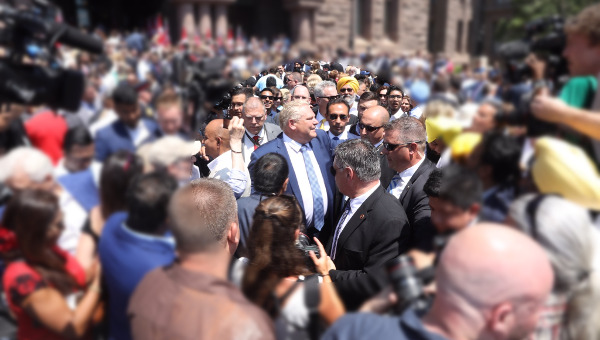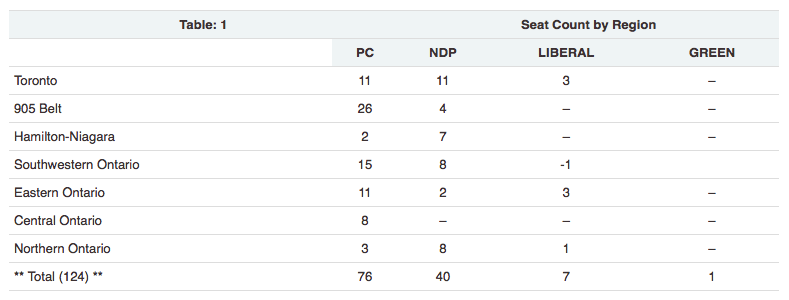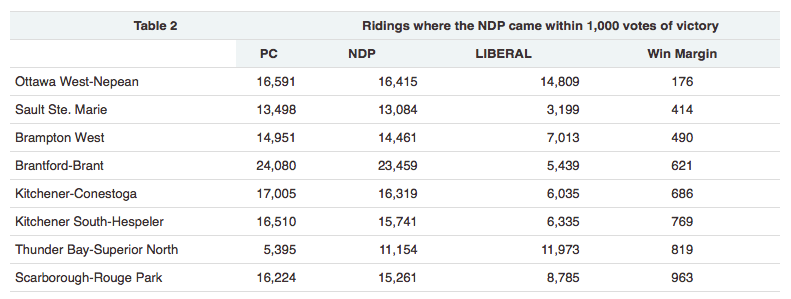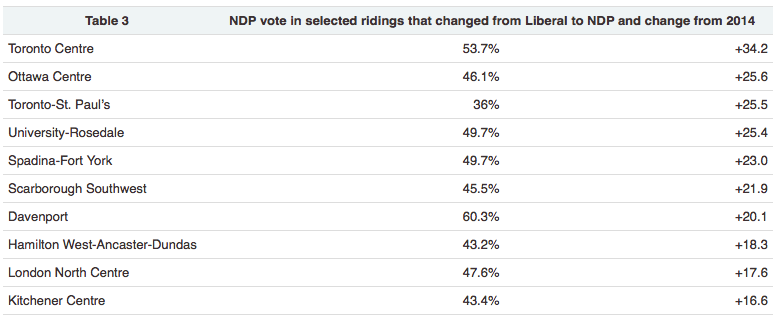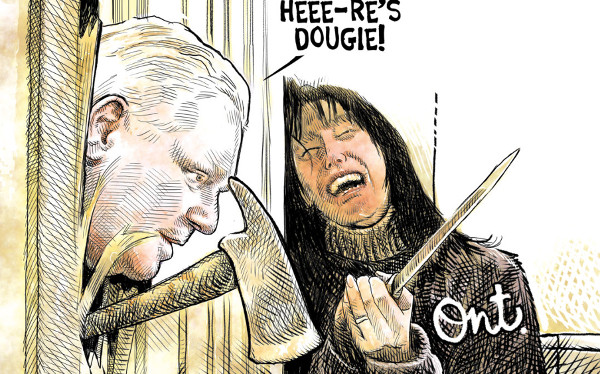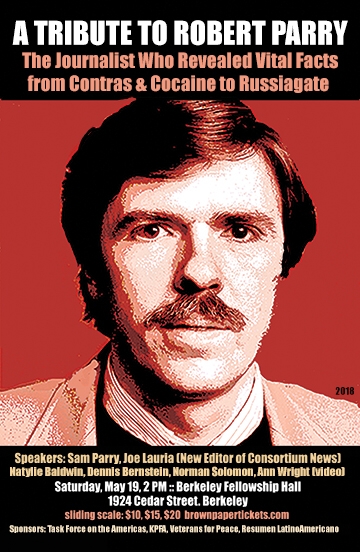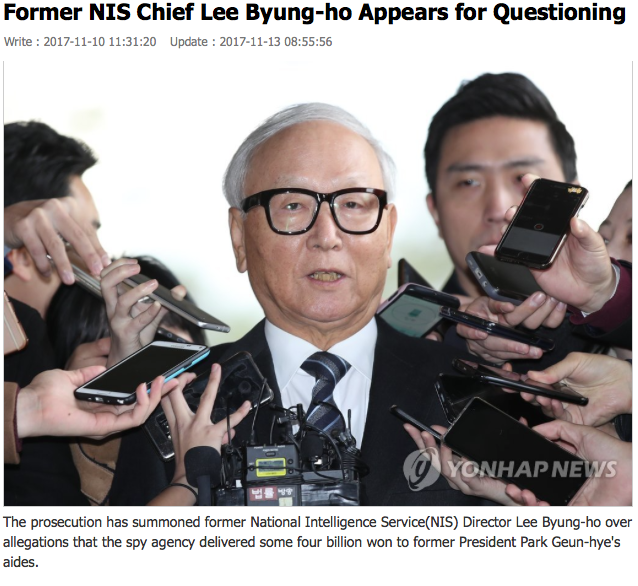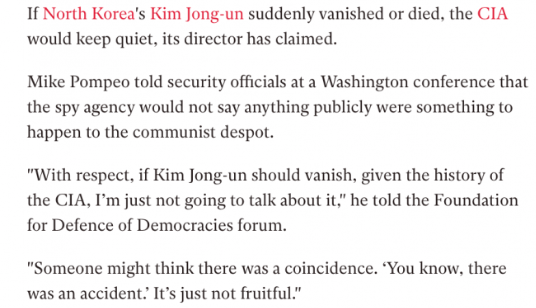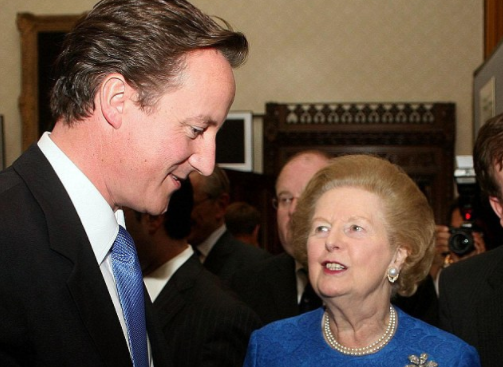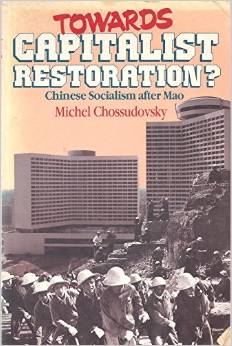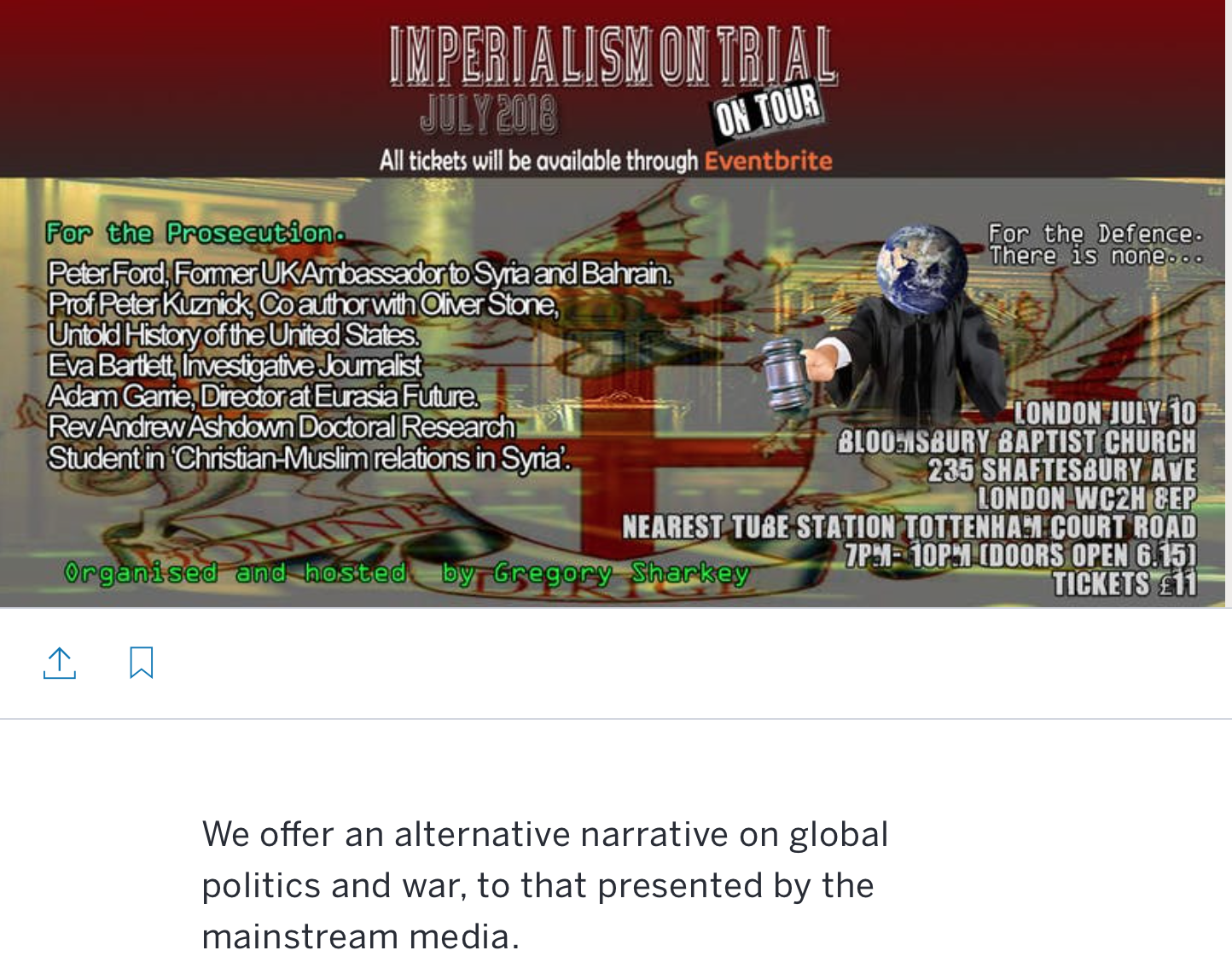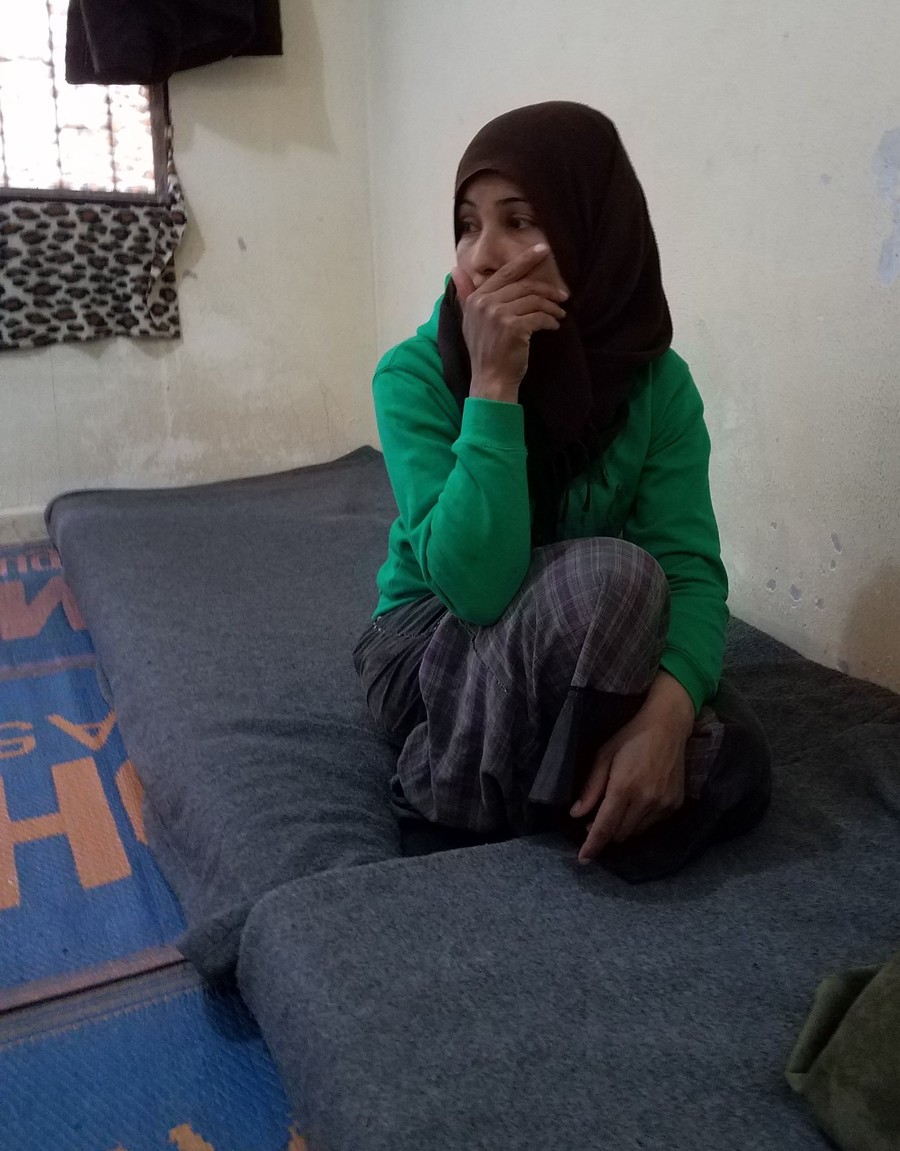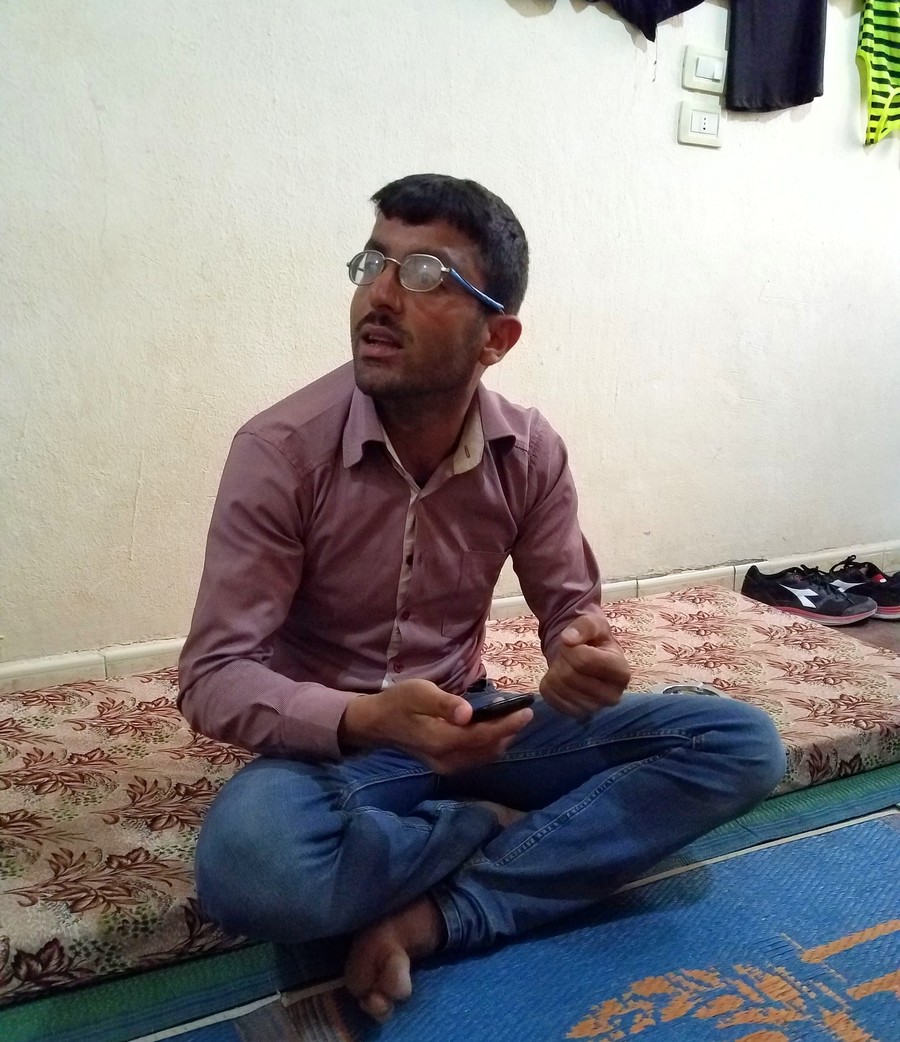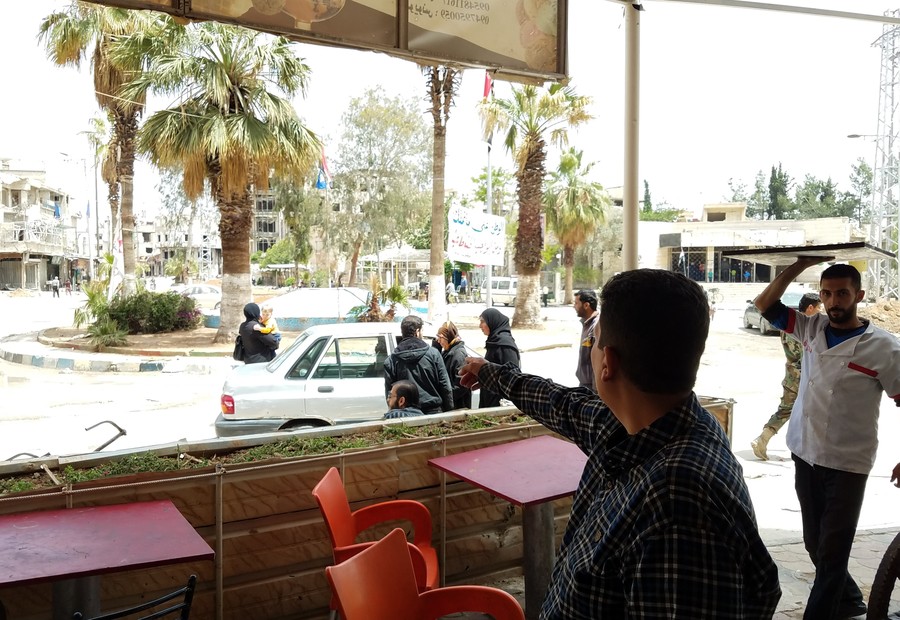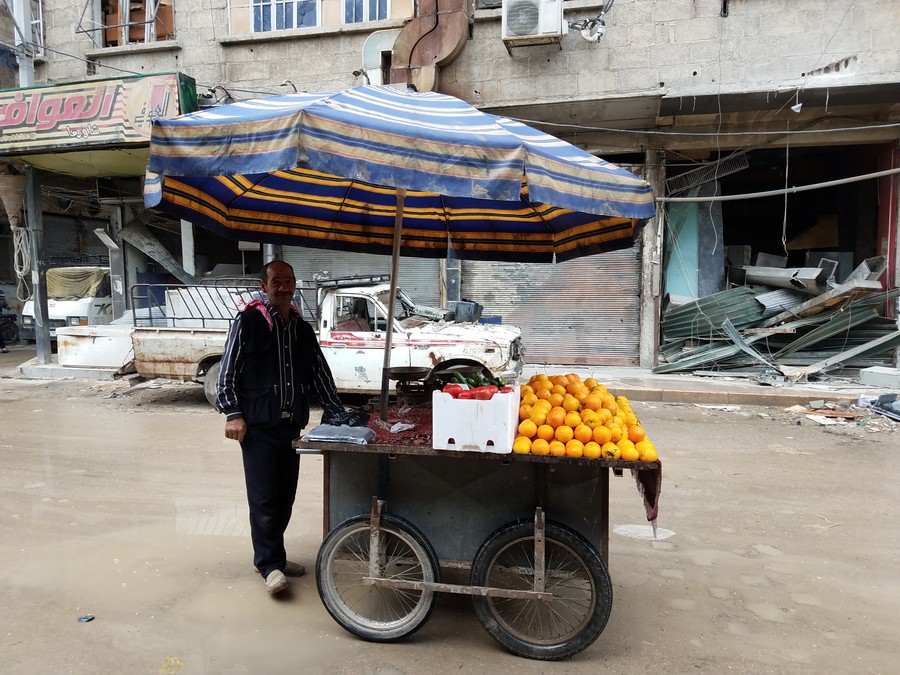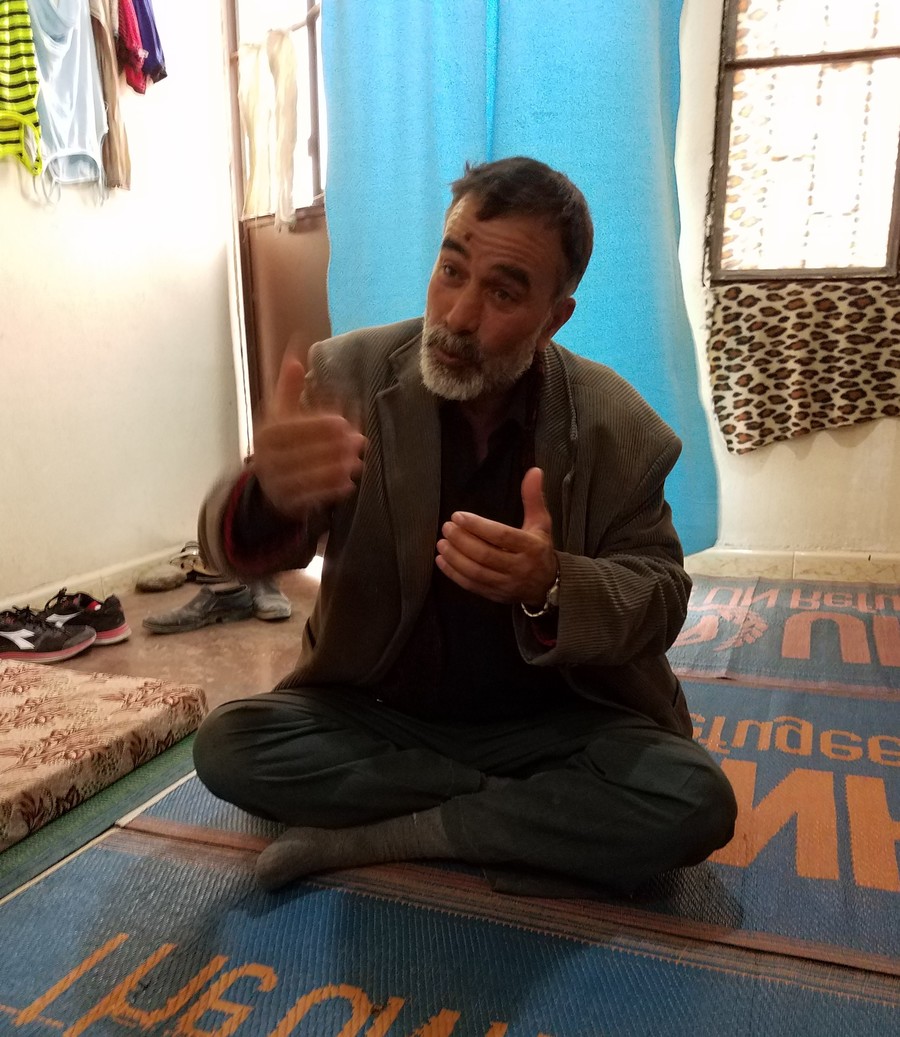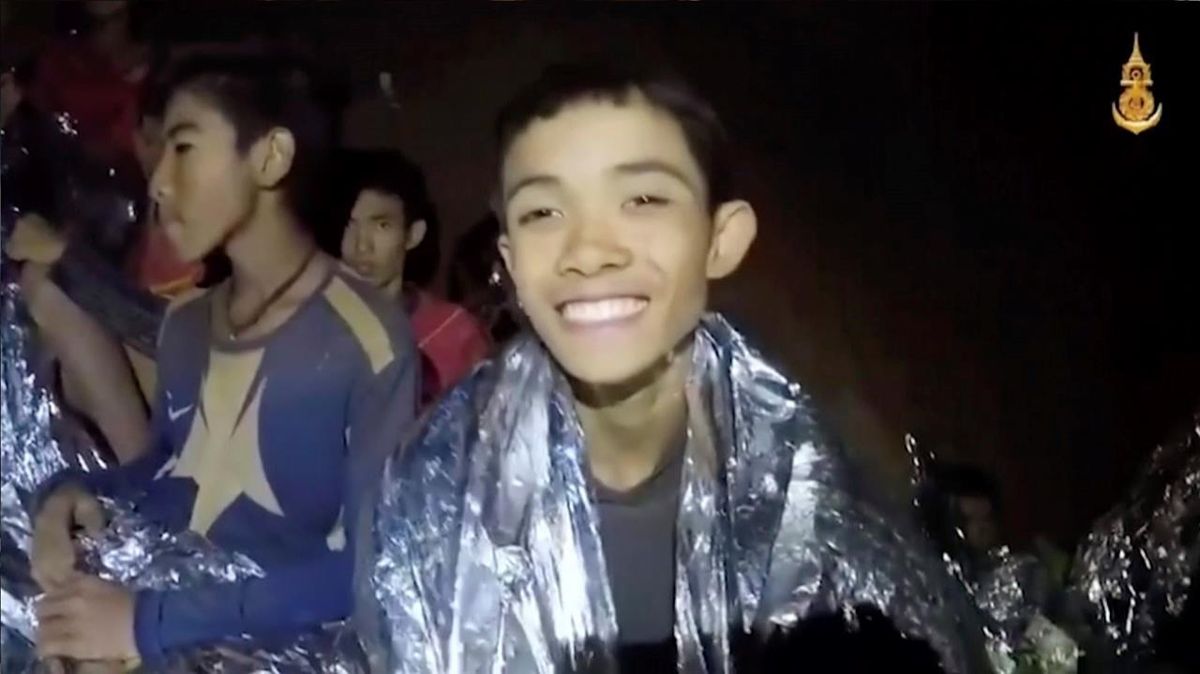Peter Kuznick will be speaking in a series of Conference venues next week in the U.K. alongside several other prominent authors including Peter Ford (former UK Ambassador to Syria and Bahrain), Eva Bartlett (investigative journalist), Professor Peter Kuznick (Co-Author with Oliver Stone, Untold History of the United States), Adam Garrie, (Director, Eurasia Future), Ken Livingstone (Former Mayor of London), Rev Andrew Ashdown (Doctoral Research Student in ‘Christian-Muslim relations in Syria’), Catherine Shakdown (geopolitical analyst and writer) and more!
Imperialism on Trial: This series of events being held in four cities in the United Kingdom (10-16 July) offers an alternative narrative on global politics and war, to that presented by the mainstream media. For details, scroll down to foot of this article.
***
In this exclusive interview, Prof Peter Kuznick speaks of: the atomic bombings of Hiroshima and Nagazaki; US crimes and lies behind the Vietnam war, and what was really behind that inhumane invasion; why the US engaged a Cold War with the Soviet Union, and how that war and the mainstream media influences the world today; the interests behind the assassinations of President Kennedy; US imperialism towards Latin America, during the Cold War and today, under the false premise of War on Terror and War on Drugs.
Edu Montesanti: Professor Peter Kuznick, thank you so very much for granting me this interview. In the book The Untold History of the United States, Oliver Stone and you reveal that the the launch of the atomic bombs at Hiroshima and Nagasaki by President Harry Truman was militarily unnecessary, and the reasons behind it. Would you comment these versions, please?
Peter Kuznick: It is interesting to me that when I speak to people from outside the United States, most think the atomic bombings were unnecessary and unjustifiable, but most Americans still believe that the atomic bombs were actually humane acts because they saved the lives of not only hundreds of thousands of Americans who would have died in an invasion but of millions of Japanese.
That is a comforting illusion that is deeply held by many Americans, especially older ones. It is one of the fundamental myths emanating from World War II. It was deliberately propagated by President Truman, Secretary of War Henry Stimson, and many others who also spread the erroneous information that the atomic bombs forced Japanese surrender. Truman claimed in his memoirs that the atomic bombs saved a half million American lives.
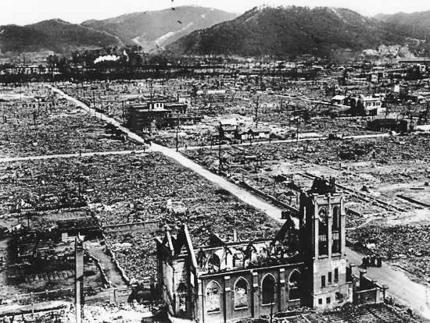
Hiroshima after the Bomb
President George H.W. Bush later raised that number to “millions.” The reality is that the atomic bombings neither saved American lives nor did they contribute significantly to the Japanese decision to surrender. They may have actually delayed the end of the war and cost American lives. They certainly cost hundreds of thousands of Japanese lives and injured many more.
As the January 1946 report by the U.S. War Department made clear, there was very little discussion of the atomic bombings by Japanese officials leading up to their decision to surrender. This has recently been acknowledged somewhat stunningly by the official National Museum of the U.S. Navy in Washington, DC, which states, “The vast destruction wreaked by the bombings of Hiroshima and Nagasaki and the loss of 135,000 people made little impact on the Japanese military.
However, the Soviet invasion of Manchuria…changed their minds.” Few Americans realize that six of America’s seven five star admirals and generals who earned their fifth star during the war are on record as saying that the atomic bombs were either militarily unnecessary or morally reprehensible or both.
That list includes Generals Douglas MacArthur, Dwight Eisenhower, and Henry “Hap” Arnold and Admirals William Leahy, Ernest King, and Chester Nimitz. Leahy, who was chief of staff to presidents Roosevelt and Truman, called the atomic bombings violations of “every Christian ethic I have ever heard of and all of the known laws of war.” He proclaimed that the “Japanese were already defeated and ready to surrender…The used of this barbarous weapon at Hiroshima and Nagasaki was of no material assistance in our war against Japan. In being the first to use it we adopted an ethical standard common to the barbarians of the dark ages.”
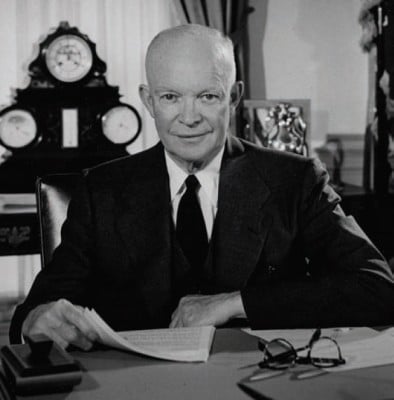 Eisenhower agreed that the Japanese were already defeated. MacArthur said that the Japanese would have surrendered months earlier if the U.S. had told them they could keep the emperor, which the U.S. did ultimately allow them to do.
Eisenhower agreed that the Japanese were already defeated. MacArthur said that the Japanese would have surrendered months earlier if the U.S. had told them they could keep the emperor, which the U.S. did ultimately allow them to do.
What really happened? By spring 1945, it was clear to most Japanese leaders that victory was impossible. In February 1945, Prince Fumimaro Konoe, former Japanese prime minister, wrote to Emperor Hirohito, “I regret to say that Japan’s defeat is inevitable.”
The same sentiment was expressed by the Supreme War Council in May when it declared that “Soviet entry into the war will deal a death blow to the Empire” and was repeated frequently thereafter by Japanese leaders.
The U.S., which had broken Japanese codes and was intercepting Japanese cables, was fully aware of Japan’s increasing desperation to end the war if the U.S. would ease its demand for “unconditional surrender.” Not only was Japan getting battered militarily,
it’s railroad system was in tatters and its food supply was shrinking. Truman himself referred to the intercepted July 18 cable as “the telegram from the Jap emperor asking for peace.” American leaders also knew that what Japan really dreaded was the possibility of a Soviet invasion, which they maneuvered unsuccessfully to forestall.
The Japanese leaders did not know that at Yalta Stalin had agreed to come into the Pacific War three months after the end of the fighting in Europe. But Truman knew this and understood the significance. As early as April 11, 1945, the Joint Intelligence Staff of the Joint Chiefs of Staff was reporting that “If at any time the USSR should enter the war, all Japanese will realize that absolute defeat is inevitable.”
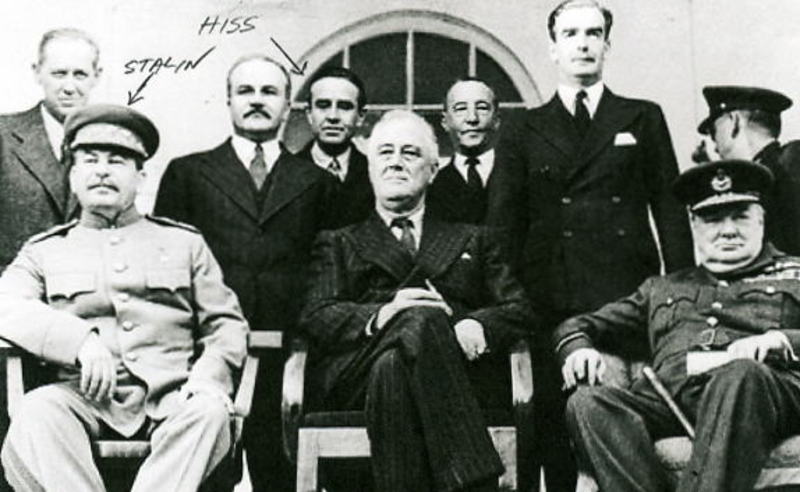
Yalta Conference 1945
At Potsdam in mid-July, when Truman received Stalin’s confirmation that the Soviets were coming into the war, Truman rejoiced and wrote in his diary, “Fini Japs when that comes about.” The next day he wrote home to his wife, “We’ll end the war a year sooner now, and think of the kids who won’t be killed.”
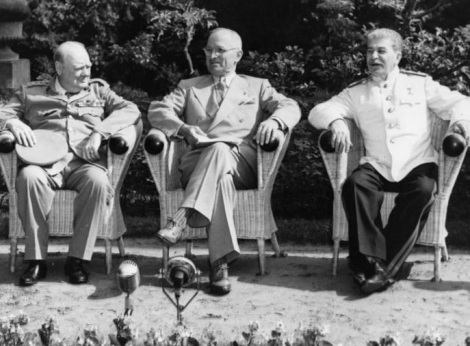
Potsdam July 1945, Churchill, Truman and Stalin
So there were two ways to expedite the end of the war without dropping atomic bombs. The first was to change the demand for unconditional surrender and inform the Japanese that they could keep the emperor, which most American policymakers wanted to do anyway because they saw the emperor as key to postwar stability. The second was to wait for the Soviet invasion, which began at midnight on August 8.
It was the invasion that proved decisive not the atomic bombs, whose effects took longer to register and were more localized. The Soviet invasion completely discredited Japan’s ketsu-go strategy. The powerful Red Army quickly demolished the Japan’s Kwantung Army. When Prime Minister Kantaro Suzuki was asked why Japan needed to surrender so quickly, he replied that if Japan delayed, “the Soviet Union will take not only Manchuria, Korea, Karafuto, but also Hokkaido.
This will destroy the foundation of Japan. We must end the war when we can deal with the United States.” The Soviet invasion changed the military equation; the atomic bombs, as terrible as they were, did not. The Americans had been firebombing Japanese cities for months. As Yuki Tanaka has shown, the U.S. had already firebombed more than 100 Japanese cities.
Destruction reached as high as 99.5 percent in downtown Toyama. Japanese leaders had already accepted that the United States could wipe out Japanese cities. Hiroshima and Nagasaki were two more cities to vanquish, however thorough the destruction or horrific the details. But the Soviet invasion proved devastating as both American and Japanese leaders anticipated it would.
But the U.S. wanted to use atomic bombs in part as a stern warning to the Soviets of what was in store for them if they interfered with U.S. plans for postwar hegemony. That was exactly how Stalin and those around him in the Kremlin interpreted the bombings. U.S. use of the bombs had little effect on Japanese leaders, but it proved a major factor in jumpstarting the Cold War.
And it put the world on a glide path to annihilation. Truman observed on at least three separate occasions that he was beginning a process that might result in the end of life on this planet and he plowed ahead recklessly. When he received word at Potsdam of how powerful the July 16 bomb test in New Mexico had been, he wrote in his diary, “We have discovered the most terrible bomb in the history of the world.
It may be the fire destruction prophesied in the Euphrates Valley Era after Noah and his fabulous Ark.” So the atomic bombings contributed very little if anything to the end of the war, but they began a process that continues to threaten humanity with annihilation today–70 plus years after the bombings. As Oliver Stone and I say in The Untold History of the United States, to kill innocent civilians is a war crime. To threaten humanity with extinction is far, far worse. It is the worst crime that can ever be committed.
Edu Montesanti: In the Vietnam War’s chapter, it is revealed that the US armed forces conducted in that small country the launch of a greater number of bombs that all launched during World War II. Would you please detail it, and comment why you think it happened, professor Kuznick?
Peter Kuzinick: The U.S. dropped more bombs against little Vietnam than had been dropped by all sided in all previous wars in history–three times as many as were dropped by all sides in WWII. That war was the worst atrocity–the worst example of foreign aggression– committed since the end of WWII. Nineteen million gallons of herbicide poisoned the countryside. Vietnam’s beautiful triple canopy forests were effectively eliminated. The U.S. destroyed 9,000 of South Vietnam’s 15,000 hamlets.
It destroyed all six industrial cities in the North as well as 28 of 30 provincial towns and 96 of 116 district towns. It threatened to use nuclear weapons on numerous occasions. Among those who discussed and occasionally supported such use was Henry Kissinger. Former Secretary of Defense Robert McNamara told my students that he believes that 3.8 million Vietnamese died in the war.
Thus, the war was truly horrific and the Americans have never atoned for this crime. Instead of winning a Nobel Peace Prize for ending the war, Henry Kissinger should be in the dock in the Hague standing trial for having committed crimes against humanity.
Edu Montesanti: Please speak of your experiences in the 60’s in Vietnam, and why the US decided to engage a war against that nation.
Peter Kuznick: Oliver and I approached the war from different perspectives. He dropped out of Yale and volunteered for combat in Vietnam. He was wounded twice and won a medal for combat valor. I, on the other hand, was fiercely opposed to the U.S. invasion of Vietnam from the start.
As a freshman in college, I started an anti-war group. I organized actively against the war. I hated it. I hated the people who were responsible for it. I thought they were all war criminals and still do. I attended many antiwar marches and spoke often at public events. I understood, as my friend Daniel Ellsberg likes to say, we weren’t on the wrong side. We were the wrong side.
The U.S. got gradually involved. It first financed the French colonial war and then took over the fighting itself after the Vietnamese defeated the French. President Kennedy sent in 16,000 “advisers,” but realized the war was wrong and planned to end it if he hadn’t been killed. U.S. motives were mixed. Ho was not only a nationalist, he was a communist. No U.S. leader wanted to lose a war to the communists anywhere.
This was especially true after the communist victory in China in 1949. Many feared the domino effect–that Vietnam would lead to communist victories across Southeast Asia. That would leave Japan isolated and Japan, too, would eventually turn toward the communist bloc for allies and trading partners. So one motivation was geopolitical.
Another was economic. U.S. leaders didn’t want to lose the cheap labor, raw materials, and markets in Indochina. Another reason was that the military-industrial complex in the U.S.–the “defense” industries and the military leaders allied with them–got fat and prosperous from war. War was their reason for being and they profited handsomely from war in both inflated profits and promotions.
So it was a combination of maintaining U.S. preeminence in the world, defending and exploiting U.S. economic interests, and a perverse and corrosive anti-communist mentality that wanted to defeat the communists everywhere.
Edu Montesanti: What were the real reasons behind the US Cold War with the Soviet Union?
Peter Kuznick: George Kennan, the U.S. State Department official who provided the theoretical rationale for the containment theory, laid out the economic motives behind the Cold War in a very illuminating memo in 1948 in which he said, “We have about 50 percent of the world’s wealth, but only 6.3 percent of its population…we cannot fail to be the object of envying resentment.
Our real task in the coming period is to devise a pattern relationships which will permit us to maintain this position of disparity.” The U.S. pursued this task. Sometimes that required supporting brutal dictatorships. Sometimes it required supporting democratic regimes. The fight occurred on the cultural as well as the political, ideological, and economic realms.
Henry Luce, the publisher of Time and Life Magazines, said, in 1941, that the 20th century must be the American Century. The U.S. would dominate the world. The U.S. set out to do so. The Soviets, having been invaded twice through Eastern Europe, wanted a buffer zone between themselves and Germany. The U.S. was opposed to such economic and political spheres that limited U.S. economic penetration.
Although the U.S. and the U.S.S.R, never went to war, they fought many dangerous proxy wars. Human beings are lucky to have survived this dismal era.
Edu Montesanti: How do you see US politics towards Cuba since the Cuban Revolution, and towards Latin America in general since the Cold War?
Peter Kuznick: The U.S. completely controlled the Cuban economy and politics from the 1890s until the 1959 revolution. Batista carried water for U.S. investors. The U.S. had intervened repeatedly in Latin American affairs between 1890 and 1933 and then often again in the 1950s. Castro represented the first major break in that cycle.
The U.S. wanted to destroy him and make sure that no one else in Latin America would follow his example. It failed. It didn’t destroy his revolution, but it guaranteed that it would not succeed economically or create the people’s democracy many hoped for.
However, it has succeeded in other ways. And the revolution has survived throughout the Cold War and since. It has inspired other Latin American revolutionaries despite all the U.S.-backed and U.S.-trained death squads that have patrolled the continent, leaving hundreds of thousands of dead in their wake.
The U.S. School for the Americas has been instrumental in training the death squad leaders. Hugo Chavez and others have picked up where Fidel left off in inspiring the Latin American left. But many progressive leaders have been brought down in recent years.
Today Dilma Rouseff is fighting for her life but Evo Morales and Alvaro Garcie Linera in Bolivia are standing proud and standing tall to resist U.S. efforts to again dominate and exploit Latin America. But across Latin America, progressive leaders have either been toppled or are being weakened by scandals. U.S.-backed neoliberals are poised once again to loot local economies in the interest of foreign and domestic capitalists. It is not a pretty picture. The people will suffer immensely while some get rich.
Edu Montesanti: According to your researches, Professor Kuznick, who killed President John Kennedy? What interests were behind that magnicide?
Peter Kuznick: Oliver made a great movie about the Kennedy assassination–JFK. We didn’t feel that we needed to revisit those issues in our books and documentaries. We focused instead on what was lost to humanity when Kennedy was stolen from us. He had grown immensely during his short time in office.
He began as a Cold Warrior. By the end of his life, following the lessons he learned during the first two years of his administration and punctuated by the Cuban Missile Crisis, he wanted desperately to end the Cold War and nuclear arms race. Had he lived, as Robert McNamara stated, the world would have been fundamentally different.
The U.S. would have withdrawn from Vietnam. Military expenditures would have dropped sharply. The U.S. and the Soviets would have explored ways to work together. The arms race would have been transformed into a peace race. But he had his enemies in the military and intelligence communities and in the military sector of the economy.
He was also hated by the Southern segregationists, the Mafia, and the reactionary Cuban exile community. But those behind his assassination would much more likely have come from the military and intelligence wing.
We don’t know who did it, but we know whose interests were advanced by the assassination. Given all the holes in the official story as detailed by the Warren Commission, it is difficult to believe that Lee Harvey Oswald acted alone and that the magic bullet did all that damage.
Edu Montesanti: Do you think US imperialism against the region today, especially attacks against progressive countries are in essence the same policy during the Cold War?
Peter Kuznick: I don’t think the U.S. wants a new cold war with a real rival that can compete around the globe. As the neocons proclaimed after the fall of the Soviet Union, the U.S. really wants a unipolar world in which there is only one superpower and no rivals.
Progressive countries have fewer major allies today than they had during the Cold War. Russia and China provide some balance to the U.S., but they are not really progressive countries challenging the world capitalist order. They both are beset by their own internal problems and inequalities.
There are few democratic socialist models for the world to follow. The U.S. has managed to subvert and sabotage most of the forward thinking and visionary governments. Hugo, despite all his excesses, was one such role model. He achieved great things for the poor in Venezuela. But if we look at what is happening now in Brazil, Argentina, Honduras, it is a very sad picture.
A new revolutionary wave is needed across the third world with new leaders committed to rooting out corruption and fighting for social justice. I am personally excited by recent developments in Bolivia, despite the results of the latest election.
Edu Montesanti: How do you see the Cold War culture influences US and world society today, Professor Kuznick? What role the Washington regime and the mainstream media play on it?
Peter Kuznick: The media are part of the problem. They have served to obfuscate rather than educate and enlighten. They inculcate the sense that there are dangers and enemies lurking everywhere, but they offer no positive solutions.
As, a result, people are driven by fear and respond irrationally. Former U.S. Vice President Henry Wallace, one of America’s leading visionaries in the 20th century, responded to Winston Churchill’s Iron Curtain speech in 1946 by warning,
“The source of all our mistakes is fear… If these fears continue, the day will come when our sons and grandsons will pay for these fears with rivers of blood… Out of fear great nations have been acting like cornered beasts, thinking only of survival.”
This also operates on the personal level where people will sacrifice their freedoms to achieve greater security. We saw that play out in the U.S. after 9/11. We’re seeing that now in France and Belgium.
The world is moving in the wrong direction. Inequality is growing. The richest 62 people in the world now have more wealth than the poorest 3.6 billion. That is obscene. There is no excuse for poverty and hunger in a world of such abundant resources. In this world, the media serve several purposes, the least of which is to inform the people and arm them with the information they need to change their societies and the world.
The media instead magnify people’s fears so that they will accept authoritarian regimes and militaristic solutions to problems that have no military solutions, provide mindless entertainment to distract people from real problems, and narcotize people into somnambulence and apathy.
This is especially a problem in the United States where many people believe there is a “free” press. Where there is a controlled press, people learn to approach the media with skepticism. Many gullible Americans don’t understand the more subtle forms of manipulation and deception.
In the U.S., the mainstream media rarely offer perspectives that challenge conventional thinking. For example, I’m constantly getting interviewed by leading media outlets in Russia, China, Japan, Europe, and elsewhere, but I’m rarely interviewed by media in the United States.
Nor do my progressive colleagues get invited onto mainstream U.S. shows. So, yes, there is a certain measure of press freedom in the United States, but that freedom is undermined not by the government as much as it is by self-censorship and silencing of progressive voices. Much of the rest of the world is more open to criticizing the U.S. but not as forthright when it comes to criticizing their own governments’ policies.
Edu Montesanti: What could you say about the ideia that the current US “War on Terror” and even “War on Drugs” especially in Latin America are ways the US has found to replace the Cold War, and so expand its military power and world domination?
Peter Kuznick: The U.S. rejects the methods of the old colonial regimes. It has created a new kind of empire undergirded by between 800 and 1,000 overseas military bases from which U.S. special forces operate in more than 130 countries each year.
Instead of invading forces consisting of large land armies, which has proven not to work in country after country, the U.S. operates in more covert and less heavy-handed ways. Obama’s preferred method of killing is by drones.
These are of dubious legality and produce questionable results. They are certainly effective in killing people, but there is lots of evidence to suggest that for every “terrorist” they kill, they create 10 more in his or her place.
The War on Terror that the U.S. and its allies have waged for the past 15 years has only created more terrorists. Military solutions rarely work. Different approaches are needed and they will have to begin with redistribution of the world’s resources in order to make people want to live rather than to kill and die. People need hope.
They need a sense of connection. They need to believe that a better life is possible for them and their children. Too many feel hopeless and alienated. The failure of the Soviet model has produced a vacuum in its place. As Marx warned long ago, Russia was too culturally and economically backward to serve as a model for global socialist development.
The Revolution was challenged from the start by invading capitalist forces. Problems abounded from the beginning. Then Stalinism brought its own spate of horrors. To the extent that the Soviet model became the world standard for revolutionary change, there was little hope for creating a decent world. Nor did the Chinese model provide a better standard.
So some have turned to radical Islam, which brings its own nightmare vision. As progressive governments continue to stumble and fall, U.S. hegemony strengthens. But the U.S. has had little positive to offer the world. Future generations will look back at this Pax Americana not as a period of enlightenment but one of constant war and growing inequality.
Democracy is great in principle but less uplifting in practice. And now with the nuclear threat intensifying and climate change also threatening the future existence of humanity, the future remains uncertain. The U.S. will cling to wars on terror and wars on drugs to maintain the disparities that George Kennan outlined 68 years ago. But that is not the way forward.
The world may look upon U.S. internal politics as a descent into lunacy–an amusing sign of the complete failure of American democracy–but the outsider success of Bernie Sanders and even the anti-establishment revolt among the Republican grassroots shows that Americans are hungry for change. Both Hillary Clinton and the Republican establishment, with their Wall Street ties and militaristic solutions, do not command respect outside of certain limited segments of the population.
They may win now, but their time is limited. People everywhere are desperate for new positive, progressive answers. Some, clearly, as we see now across Europe, will turn to rightwing demagogues in times of crisis, but that is at least in part because the left has failed to provide the leadership the world needs.
A revitalized left is the key to saving this planet. We’re running out of time though. The road ahead will not be easy. But we can and must prevail.
Peter Kuznick, a History Professor and Director of the Nuclear Studies Institute at American University at American University, Washington D.C., with Oliver Stone co-authored the 10 part Showtime documentary film series and book, both titled The Untold History of the United States. A New Yorker who was active in the Civil Rights and anti-Vietnam War movements, and remains active in antiwar and nuclear abolition efforts, Professor Kuznick is also author of Beyond the Laboratory: Scientists As Political Activists in 1930s America (University of Chicago Press), co-author with Akira Kimura of Rethinking the Atomic Bombings of Hiroshima and Nagasaki: Japanese and American Perspectives(Horitsu Bunkasha, 2010), co-author with Yuki Tanaka of Genpatsu to Hiroshima – Genshiryoku Heiwa Riyo No Shinso [Nuclear Power and Hiroshima: The Truth Behind the Peaceful Use of Nuclear Power (Iwanami, 2011)], and co-editor with James Gilbert of Rethinking Cold War Culture (Smithsonian Institution Press).
Edu Montesanti is author of Lies and Crimes of “War on Terror” (Ed. Scortecci, Brazil, 2012; Mentiras e Crimes da “Guerra ao Terror”, original in Portuguese), and writes forPravda (Russia)
Featuring Peter Ford (former UK Ambassador to Syria and Bahrain), Eva Bartlett (investigative journalist), Professor Peter Kuznick (Co-Author with Oliver Stone, Untold History of the United States), Adam Garrie, (Director, Eurasia Future), Ken Livingstone (Former Mayor of London), Rev Andrew Ashdown (Doctoral Research Student in ‘Christian-Muslim relations in Syria’), Catherine Shakdown (goepolitical analyst and writer) and more!
This series of events being held in four cities in the United Kingdom offers an alternative narrative on global politics and war, to that presented by the mainstream media.
Imperialism on Trial – July 2018
UK Tour Dates:
London – Tuesday July 10
Bloomsbury Baptist Church
235 Shaftesbury Ave.
7:00 PM – 10:00 PM BST [Doors open at 6:15]
Eva Barlett, Peter Kuznick, Peter Ford, Adam Garrie, Rev Andrew Ashdown
London – Wednesday July 11
Bloomsbury Baptist Church
235 Shaftesbury Ave.
7:00 PM – 10:00 PM BST [Doors open at 6:15]
Eva Bartlett, Peter Kuznick, Peter Ford, Neil Clark, Adam Garrie
Birmingham – Thursday July 12
Quaker Meeting House
40 Bull Street
6:45 – 9:15 BST [Doors open at 6:15]
Eva Bartlett, Peter Kuznick, Ken Livingstone, Peter Ford, Catherine Shakdam
Liverpool – Sunday July 15
Liverpool Irish Centre
6 Boundary Lane
7:00-10:30PM BST [Doors open at 6:30]
Eva Bartlett, Peter Ford, Peter Kuznick, Dan Glazebrook, Gerry Maclochlainn.
Manchester – Monday July 16
Manchester Irish Centre
1 Irish Town Way
7:00 – 10:30PM BST [Doors open at 6:30]
Eva Bartlett, Dan Glazebrook, Gerry Maclochlainn, Michael Pike, Rev Andrew Ashdown
From the organizer Gregory Sharpie:
In essence we have a mixture of academics, clergy, former diplomats, politicians, former military and paramilitary, journalists and writers. They will cover Eurasia, Latin America, Ireland, Palestine, Syria, Iran, Bahrain, Yemen, Wahhabism, DPRK, Balkans, Russia, Ukraine, and the subjects/countries.
Other topics that’ll be covered are: Mainstream media- propaganda and lies; neoliberalism and neocolonialism; imperialism and racism; imperialism and the military; unipolarism vs multipolarism; inter-faith outreach work; and whatever extra topics you will cover.
Imperialism on Trial is a theme for events that I organize and host. These events bring together an array of speakers from the world of politics, academia, journalism, former diplomats and clergy to offer their insights and expertise on the subject of imperialism and neoliberalism.
We provide a platform where an alternative perspective and analysis is presented to the audience and on-line viewers, which challenges the mainstream narrative.
All speakers are driven by a profound and sincere desire for an end to these endless wars of aggression, and regime changes. We all want peace, diplomacy, and good international relations to replace what has
become the norm for the hegemon- the US and it’s vassal states- of coercive diplomacy, sanctions, threats of war, hot wars, cold wars and proxy wars.
We welcome an alternative to the unipolar vision advanced by the neoliberal and imperialist elites; and embrace a world which has multi spheres of influence, where no one country, or group of countries dominate others.
We believe that trade and international relations should be based on parity, and not coercion and subservience. We espouse the rights for countries to have national sovereignty and self-determination, and to not live in fear of war or economic hardship from sanctions.
We are anti-imperialists, and don’t pick favourites. We don’t victim-blame. A victim of imperialism is a victim. No person, no
country, no leader is perfect. It is not the role of the West, or any nation to impose its will on another sovereign nation.

